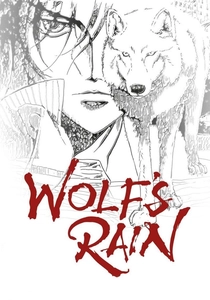If you're a fan of the dark, philosophical, and cyberpunk world of 'Ergo Proxy' (2006), you're in for a treat. This article explores 10 similar movies and shows that delve into dystopian futures, existential themes, and mind-bending narratives. Whether you loved the psychological depth or the futuristic setting of 'Ergo Proxy,' these recommendations will keep you hooked.

Akira (1988)
Description: A groundbreaking anime film set in a post-apocalyptic Tokyo, exploring themes of power, corruption, and the limits of human evolution. Its dark, atmospheric tone and complex narrative resonate with similar works.
Fact: The film was one of the first anime to gain widespread international acclaim and is often credited with popularizing anime outside of Japan.
 Watch Now
Watch Now 
Neon Genesis Evangelion (1995)
Description: A mecha anime with deep psychological and philosophical themes, focusing on the struggles of its characters and the existential questions raised by their battles. Its introspective and often bleak tone sets it apart.
Fact: The series was initially intended to be a more straightforward mecha show but evolved into a deeply personal and controversial work.
 Watch Now
Watch Now 
Casshern Sins (2008)
Description: A post-apocalyptic anime that follows a morally ambiguous protagonist as he grapples with guilt, redemption, and the nature of humanity. Its melancholic tone and philosophical themes are central to its appeal.
Fact: The series is a reimagining of the 1970s anime 'Casshan' and features a distinctive art style influenced by European comics.
 Watch Now
Watch Now 
Boogiepop Phantom (2000)
Description: A nonlinear, atmospheric horror anime that explores the psychological and supernatural effects of a mysterious event on a group of people. Its fragmented storytelling and eerie tone create a unique experience.
Fact: The series is based on a light novel series and is known for its unconventional narrative structure.
 Watch Now
Watch Now 
Ghost in the Shell: Stand Alone Complex (2002)
Description: A cyberpunk anime that delves into the intersection of technology and human identity, featuring a mix of action, political intrigue, and philosophical questions about consciousness and existence.
Fact: The series is known for its detailed animation and its use of real-world technology concepts, which were often ahead of their time.
 Watch Now
Watch Now 
Wolf's Rain (2003)
Description: A fantasy anime set in a dying world, following a group of wolves searching for paradise. Its themes of hope, despair, and the search for meaning are conveyed through a haunting and poetic narrative.
Fact: The series features a soundtrack by Yoko Kanno, known for her work on 'Cowboy Bebop' and other iconic anime.
 Watch Now
Watch Now 
Haibane Renmei (2002)
Description: A quiet, introspective anime that explores themes of identity, redemption, and the afterlife through the lives of angel-like beings in a secluded town. Its gentle yet profound storytelling creates a deeply emotional experience.
Fact: The series was created by Yoshitoshi ABe, who also worked on 'Serial Experiments Lain,' and is known for its minimalist art style and atmospheric tone.
 Watch Now
Watch Now 
Paranoia Agent (2004)
Description: A psychological thriller that weaves together multiple storylines to explore themes of societal pressure, mental illness, and collective delusion. Its surreal and unsettling tone makes it a standout.
Fact: The series was created by Satoshi Kon, known for his unique storytelling and blending of reality and fantasy.
 Watch Now
Watch Now 
Paprika (2006)
Description: A surreal and visually stunning film that blurs the line between dreams and reality, exploring the subconscious and the power of the human mind. Its inventive storytelling and vibrant animation are hallmarks.
Fact: The film was a major influence on Christopher Nolan's 'Inception,' particularly in its depiction of dream worlds.
 Watch Now
Watch Now 
Psycho-Pass (2012)
Description: A dystopian cyberpunk series that explores themes of free will, societal control, and the nature of humanity through a futuristic lens. It features a complex narrative with psychological depth and philosophical undertones.
Fact: The series was influenced by classic works of science fiction literature, including George Orwell's '1984' and Philip K. Dick's 'Do Androids Dream of Electric Sheep?'.
 Watch Now
Watch Now 








